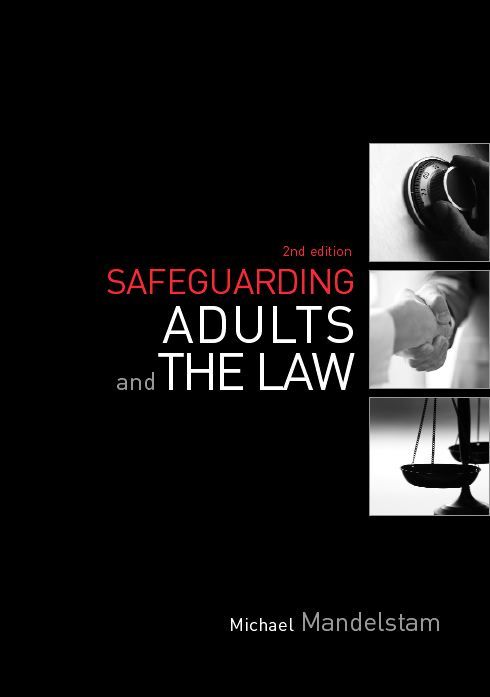 In this article Michael Mandelstam, author of new book Safeguarding Adults and the Law looks at why the continuing abuse and neglect of adults in health and social care is a pressing matter and highlights what safeguarding boards are up against when challenging these issues.
In this article Michael Mandelstam, author of new book Safeguarding Adults and the Law looks at why the continuing abuse and neglect of adults in health and social care is a pressing matter and highlights what safeguarding boards are up against when challenging these issues.
Since the last edition of this book, published early in 2009, the profile of safeguarding adults has risen. Accordingly, this new edition continues to consider neglect and abuse across a broad spectrum of settings, circumstances and law. Yet, in early 2013, one issue warrants singling out following the public inquiry into Mid Staffordshire NHS Foundation Trust. It is systemic poor care and neglect in health (and social) care, and suffered by older people. It is a pressing matter for several reasons.
First, the evidence of the last 15 years points beyond reasonable doubt to a problem serious in its nature and extent.[1] The type of health care exposed at Stafford is no isolated instance or mere outlier.
Second, to delineate the problem in this book is not to criticise unduly the National Health Service and local authorities but to point out pitfalls to avoid, with a view to maintaining all that is good in these services. Of this good, there is a great deal. But the existence of the good does not preclude the bad.
Third, those many deniers, and evaders of accountability, within the NHS, local authorities and central government, have much to answer for. An unacknowledged problem cannot be solved. The ills gain ground before they break out virulently, as has happened at Stafford and elsewhere in the NHS.
Fourth, we look to the State, the NHS and social services, to safeguard vulnerable adults from external threat, for example, the dishonest neighbour or sadistic carer. But the State must look to itself as well; State perpetrated poor care and neglect raises the stakes – legally, morally and of course politically. In tackling these ills, “safeguarding adults” as an activity is currently on the side-lines, a bystander raising the occasional shout. This is the harsh conclusion reached if one compares the magnitude of the problem with the limited inroads made into it – by the NHS, local authorities, the Care Quality Commission, Health and Safety Executive, General Medical Council, Nursing and Midwifery Council, the police and the Crown Prosecution Service.
Lastly, safeguarding adults boards, responsible for steering local safeguarding activity, need to ask themselves searching questions about their direction and priorities in relation to systemic poor care and neglect. This is so particularly if those ills flow from key partners within the local board itself, that is, the NHS and social services who, through provision or commissioning of care, may be causing the very harm they are meant to be combating.
If these boards are to grasp the nettle, they will have to take on vested interests and be prepared to upset people. In the wake of the Stafford public inquiry, they could do worse than read an incisive article published in Private Eye: Return to the killing fields: a chronicle of deaths foretold.[2] Amongst other things, it indicates the forces you are up against in challenging poor care, neglect, death, denial and lack of accountability in the NHS. If in doubt, turn also to Dr. Heather Wood, undaunted inspector of the Healthcare Commission, who has written of the “deep rooted pathology [which] is the stranglehold that managers, many apparently devoid of an ethical code and certainly without a regulatory body, have on the NHS”.[3] Or to Professor Brian Jarman’s equally eye-opening When managers rule.[4]
Formidable obstacles may be, but to be worthy of their name and the statutory status which they will in future enjoy, safeguarding boards surely need to develop hard hitting strategies to counteract systemic poor care and neglect. For instance, at present they conduct serious case reviews when individual, vulnerable adults are abused or killed by acquaintances, or perhaps when a person dies of self-neglect. They need to be hunting bigger game as well.
[1] Mandelstam, M. How we treat the sick: neglect and abuse in our health services. London: Jessica Kingsley Publishers, 2011.
[2] M.D. Return to the killing fields: a chronicle of death foretold. Private Eye, 22th February – 7th March 2013.
[3] Wood, H. Mid Staffs is evidence of all that is wrong with NHS management: the balance of power must shift back to the clinicians. British Medical Journal, 6th February 2013.
[4] Jarman B. When managers rule. British Medical Journal, 19th December 2012.
Safeguarding for adults at risk has been a varied topic during training in care and how people can have the confidence to report early signs of abuse to the authorities.